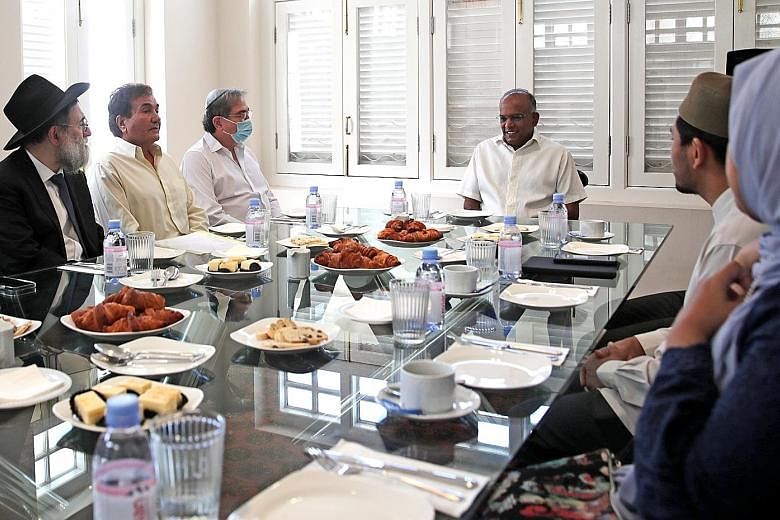SINGAPORE - While the number of young people radicalised by extremist material on the Internet has increased, Law and Home Affairs Minister K. Shanmugam cautioned against thinking it is a problem affecting only the young.
He noted that the Internal Security Department (ISD) has arrested radicalised individuals who were in their 30s to 50s as well.
Since 2015, eight of the 54 people ISD had dealt with under the Internal Security Act for terror-related conduct were under 21.
These youth cases show that the threat of radicalisation is reaching younger people, the minister said. "The Internet (and) what's available - it causes them to go astray. Not because of any fault of the religious authorities, but they are not exposed enough to the real teachings of the religion."
"Whether it's Islam or Christianity or any other religion, none of them tell you to go out there and kill people."
Instead of good teachings that preach for people to treat other religions with care and to protect them, what comes through to some on the Internet is violence, he told reporters at Maghain Aboth Synagogue in Waterloo Street shortly before ISD announced that a 20-year-old Singaporean man had been detained for making plans to kill Jews leaving the synagogue.
Mr Shanmugam noted that young people might have fewer "guidelines" to help them navigate uncertainties and inculcate life lessons, which could leave them more susceptible to radicalisation.
"When you are a bit older, you have had more time into your religion, you have had more life factors around you, maybe you're married, you have a family... so you have that balance to carry you through and see things in greater perspective. When you're younger, you have less of that," he said.
Mr Shanmugam said Singapore faces a serious challenge in identifying extremists who secretly plot attacks, as well as those who are radicalised in a short span of time.
The country has been lucky that every terror plan so far has been foiled, he said, crediting the work of the ISD, as well as constant vigilance by the community.
But the struggle against terrorism is a constant one, he added, noting that while the ISD has to succeed every single time, terrorists with violent intentions only have to succeed once to disrupt the peace and harmony in Singapore.


